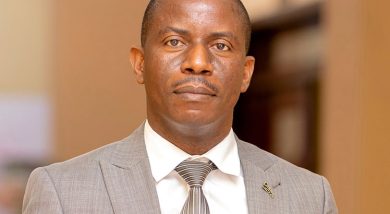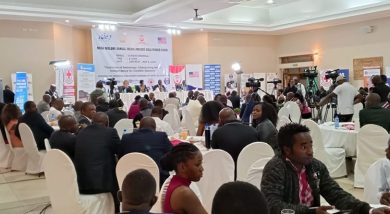SA returnees in forced quarantine
Over 1 000 returnees from South Africa expected to start arriving yesterday would be put in mandatory quarantine where the army and police will provide security, government has said.
The 1 314 returnees left South Africa on Friday for Malawi, a development that concerned most Malawians at a time the Covid pandemic is hitting hard.
The concern follows past experience where the returnees that were kept in isolation camps, bolted before their quarantine days expired. In the case of Mapanga camp in Blantyre, the returnees rioted and set on fire some structures.

But Ministry of Health spokesperson Joshua Malango said in an interview yesterday they would put all the returnees in mandatory quarantine as per Covid gazetted guidelines, warning it is an offence for any returnee to go against the set guidelines.
He said those with test results from South Africa, would be expected to show them.
“But we would expect everyone to be tested and quarantined in camps we have, Mapanga for the South and Mtakataka for the Centre. We’ve engaged the police and the army to provide security,” Malango said.
The Ministry of Health said they would not expect any returnee to freely mingle around, warning security officers would deal with such individuals.
Asked how the government dealt with returnees who bolted camps, Malango said their assumption was that those people may have healed because the time one is supposed to be in quarantine elapsed and the disease is not permanent.
“But I must also mention that we have some people that were arrested and are answering criminal charges,” he said.
A health activist Maziko Matemba in an interview urged government to be cautious in handling the returnees, warning that South Africa is a country in the region which had been hit so hard with a new strain.
“This is a very delicate issue. We have seen the local figures soaring at an alarming speed. Government has a duty to protect Malawians. The frontliners in the health sector are overwhelmed. I expect government and all stakeholders to be more vigilant,” he said.
From Thursday, cases started to spike with Presidential Task force on Covid co-chairperson Dr. John Phuka announcing in a statement that Malawi had registered 1 316 new Covid cases in a single day.
By then, and cumulatively, Malawi had recorded 17 365 cases including 445 deaths, with case fatality rate standing at 2.6 percent.
“Of these cases, 1 928 are imported infections and 15 437 are locally transmitted. Cumulatively, 6 408 cases have now recovered, 134 were lost to follow-up, and 76 are still being investigated to ascertain their outcome.
“This brings the total number of active cases to 10 302. Of the active cases 262 are currently admitted: 98 in Blantyre at Queen Elizabeth Central Hospital, 56 in Lilongwe, 15 in Mzimba North, 14 in Zomba, 10 in Karonga, nine each in Mulanje and Chiradzulu, seven in Kasungu, six in Chikwawa, five in Balaka, four each in Dowa and Chitipa, three each in Mzimba South, Mangochi, Machinga, Mchinji, and Salima, two each in Nkhotakota, Thyolo, Rumphi and Nsanje, and one each in Ntcheu and Ntchisi,” he reported.
“One of the preventive measures in the fight of Covid-19 is the proper wearing of face masks and let me also point out that mask wearing is now mandatory in all public places under the new gazetted Covid-19 prevention and containment rules.
“I would like to appreciate those that have taken up the wearing of masks seriously and let me encourage the public to wear a cloth mask always whenever they are going into crowded places. Masks are recommended as a simple barrier to help prevent respiratory droplets from travelling into the air and onto other people when the person wearing the mask coughs, sneezes, talks, or raises their voice.
“This is called source control. Apart from reducing the spread of Covid-19, face masks play an important role in the prevention and control of other infectious respiratory disease transmission such as influenza. Compliance with other measures, including physical distancing, hand hygiene, respiratory etiquette and adequate ventilation in indoor settings is essential for reducing the spread of Sars-CoV-2, the virus that causes Covid-19,” he advised.
On the use of masks by children, he said those aged up to five years should not wear masks for source control. But for children aged six to 11 years could wear a mask based on the child’s capacity to comply with the appropriate use of masks and availability of appropriate adult supervision.
“As a precautionary measure, irrespective of age children with severe cognitive or respiratory impairments who have difficulties tolerating a mask should not wear masks.
“Lastly, we have observed a rise in complaints on different platforms, including the social media about the quality of services being provided in our hospitals related to Covid-19 i.e. testing, treatment, handling of dead bodies and others.
“I would like to take this opportunity to remind the public that there is a system for lodging complaints instituted by the Ministry of Health in collaboration with the Office of the Ombudsman. Each public and Cham [Christian Health Association of Malawi] health facility has a hospital Ombudsman whose responsibility is to handle complaints raised by service users,” he said.





